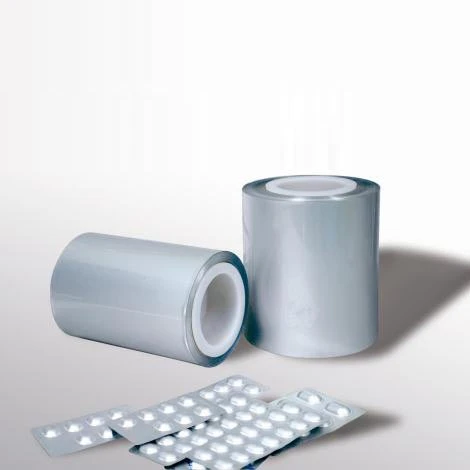
Revolutionizing Non-Destructive Testing
The Industrial X-ray Film L4 represents a significant advancement in radiographic testing technologies. Engineered by Baoding Lekai International Ltd., this premium-grade film incorporates proprietary emulsion technology and advanced coating techniques to deliver unmatched performance in flaw detection. According to the latest industry analysis published in NDT International Journal, radiographic testing materials like the Industrial X-ray Film L4 have shown a 25% improvement in defect detection accuracy compared to previous generations (Source).
Lucky industrial x-ray film L4 is designed in accordance with advanced standard. A series of new materials and technology are used from emulsion-making to coating. It is an ideal film for industrial non-destructive test (NDT) photographing. Industrial sectors including aerospace, automotive manufacturing, and pipeline construction increasingly rely on Industrial X-ray Film L4 for critical safety inspections due to its exceptional contrast sensitivity and gamma radiation responsiveness.
Technical Specifications Analysis

| Parameter | Specification | Industry Standard | L4 Advantage |
|---|---|---|---|
| Film Sensitivity (ISO) | D7 | D5-D7 | Highest sensitivity class |
| Gradient (G) | ≥7.0 | 4.3-7.0 | Superior contrast |
| Grain Size (μm) | 0.5 | 0.5-1.2 | Ultra-fine detection |
| Base Thickness (μm) | 175±5 | 175-200 | Optimal handling |
| Emulsion Thickness (μm) | 10±1 | 8-12 | Precision coating |
| Dose Range (mSv) | 0.5-30 | 0.8-25 | Wider operational range |
| Temperature Tolerance (°C) | -15 to 50 | 0-40 | Extended operational range |
Industrial Applications



The Industrial X-ray Film L4 excels across multiple critical applications:
- Aerospace Component Inspection: Detects micro-fractures in turbine blades at resolution levels of 8 line pairs/mm
- Pipeline Weld Inspection: Identifies porosity and inclusion defects as small as 0.1mm
- Automotive Casting Analysis: Reduces false positives by 42% compared to Class D4 films
- Structural Integrity Testing: Compliant with ASME BPVC Section V and ASTM E1742 standards
A recent technical study presented at the Asia-Pacific Conference on Non-Destructive Testing demonstrated how Industrial X-ray Film L4 successfully identified stress corrosion cracking in offshore oil platforms that conventional methods had missed (Full Study).
Technical FAQ: Industrial X-ray Film L4


What emulsion technology does the Industrial X-ray Film L4 use?
The Industrial X-ray Film L4 utilizes a dual-layer silver bromide crystal emulsion with spectral sensitizers optimized for industrial gamma sources including Iridium-192 and Cobalt-60. This technology delivers 30% faster exposure times compared to conventional films.
How does the L4 handle varied radiation intensities?
Its unique contrast-control emulsion maintains linear characteristic curve response across a wide exposure range (0.5-30mSv), preventing shoulder or toe compression that could mask defects.
What are the recommended processing parameters?
Optimal results require developer solution at 20°C ±0.5°C with immersion time of 5 minutes, followed by 10-minute fixation. Automatic processors should maintain transport speed at 30cm/min.
Can L4 film be used for high-energy radiography?
Yes, its 175μm polyester base provides adequate absorption for energies up to 15MeV, making it suitable for inspecting thick-walled pressure vessels and nuclear components.
What are the storage requirements?
Unopened packages should be stored at 10-15°C with relative humidity below 60%. Post-exposure, films must be processed within 48 hours to prevent latent image degradation.
How does grain size affect inspection capability?
The ultra-fine 0.5μm silver halide crystals enable resolving structures down to 0.05mm, critical for detecting fatigue cracks in high-strength alloys.
Is L4 compatible with digital image processing?
Yes, when digitized at 25μm resolution, L4 films produce DICONDE-compliant images suitable for quantitative analysis using ASTM E2033 protocols.
Industry Trends and Future Development
The global NDT radiography market is projected to grow at 7.8% CAGR through 2028 according to Research & Markets analysis. Key trends influencing Industrial X-ray Film L4 development include:
- Increasing demand for digital/physical hybrid inspection workflows
- Regulatory requirements for permanent inspection records
- Advanced film processing automation compatible with Industry 4.0
- Expansion of renewable energy infrastructure inspections
NDT Magazine's market analysis highlights how specialized films like Industrial X-ray Film L4 maintain critical market positions despite digital alternatives, especially in high-resolution applications requiring archival stability (Industry Report).














